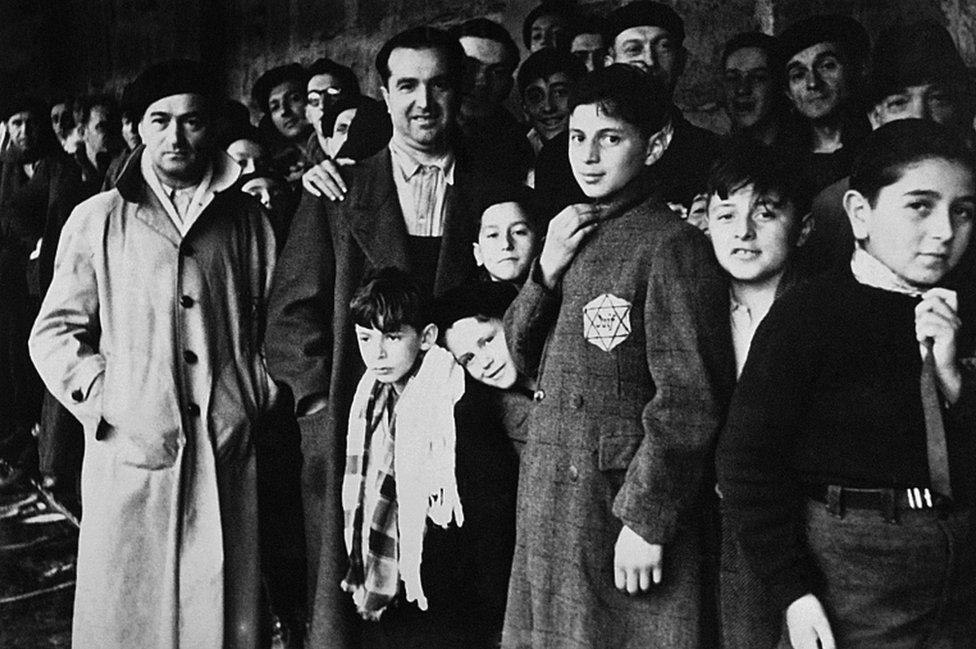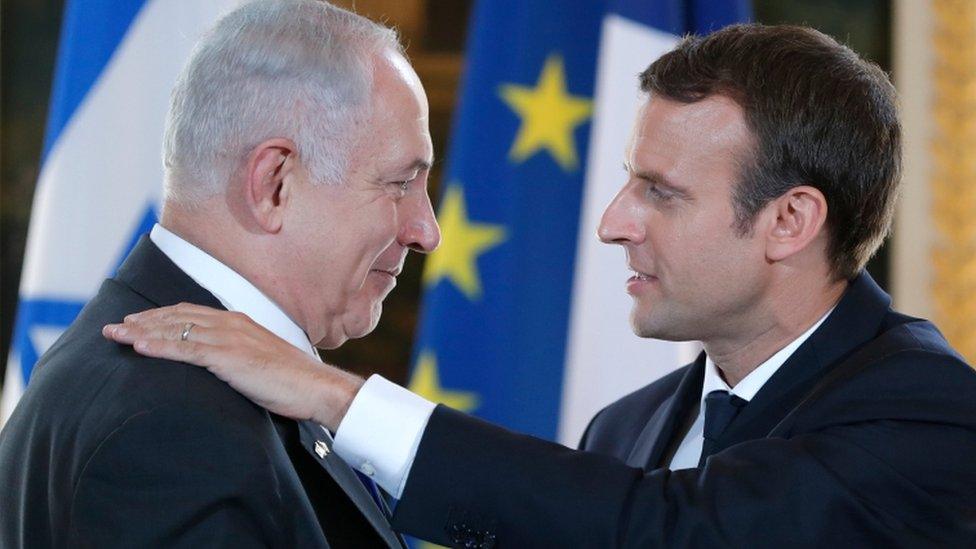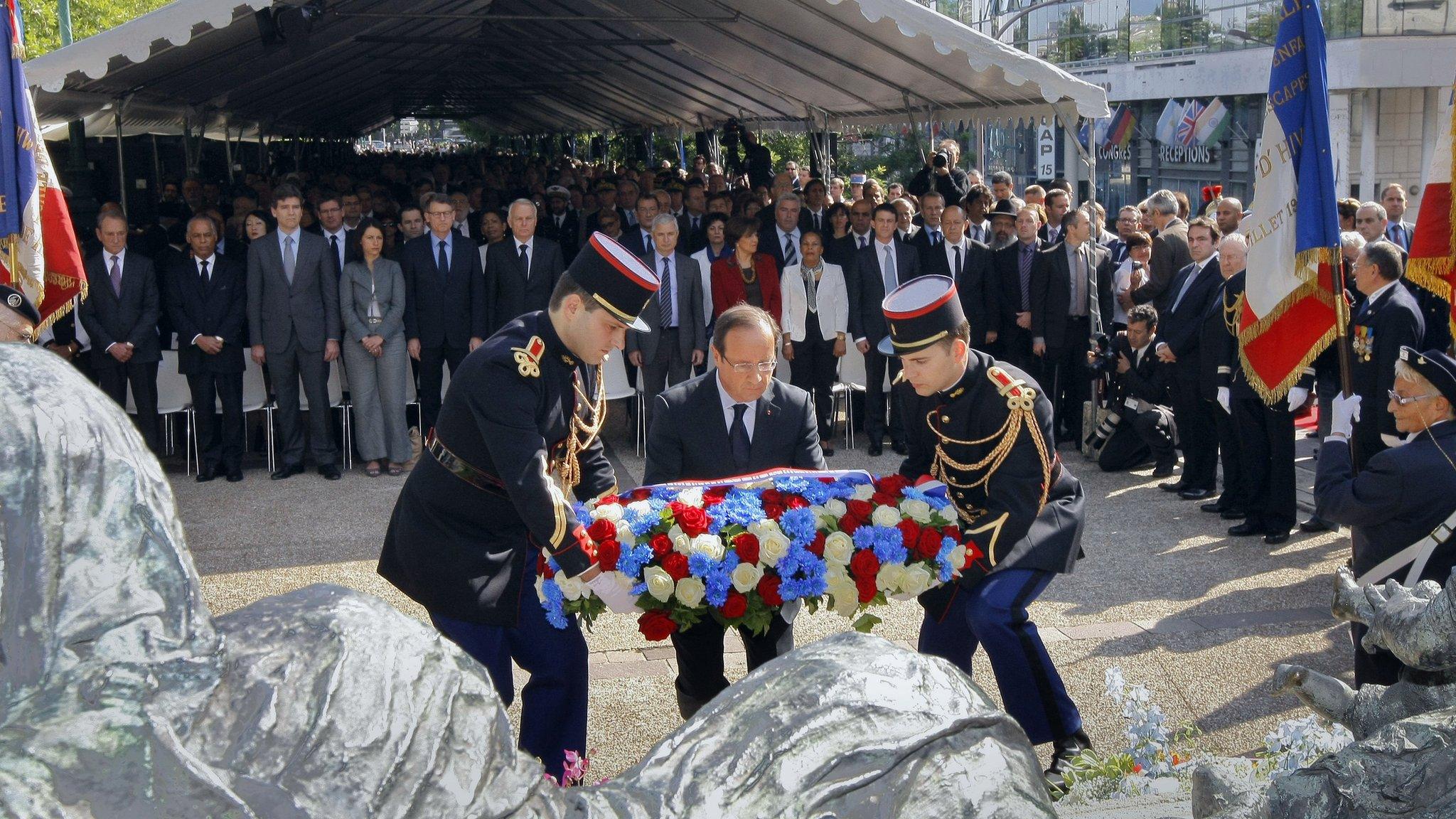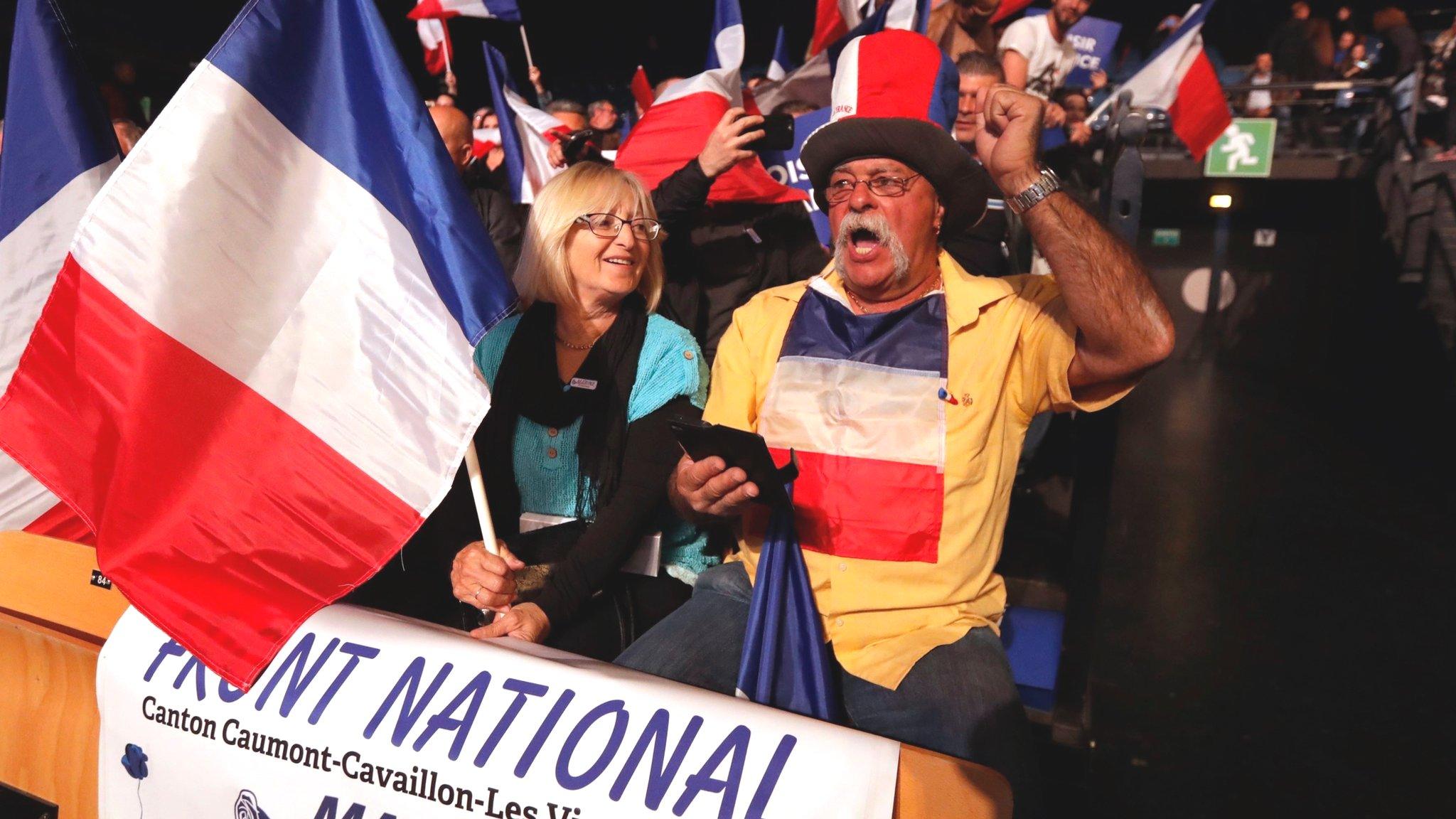Netanyahu in Paris to commemorate Vel d'Hiv deportation of Jews
- Published
Speaking in Paris, Mr Netanyahu warned of the rise of "extremist forces"
Israeli Prime Minister Benjamin Netanyahu is in Paris to commemorate the victims of a mass arrest of Jews in Nazi-occupied France in 1942.
More than 13,000 Jews were rounded up and detained at a cycling stadium, the Velodrome d'Hiver, before being deported to Nazi death camps.
Mr Netanyahu also held direct talks for the first time with French President Emmanuel Macron.
He is the first Israeli prime minister to attend the Vel d'Hiv commemorations.
"I'm here to mourn the victims," Mr Netanyahu told an audience in Paris, which included Jewish groups and Holocaust survivors.
"Seventy-five years ago, a heavy darkness descended on this city... It seems the values of the French revolution - equality, fraternity, liberty - was crushed brutally under the boot of anti-Semitism."
He hailed the "great, great human beings" who had risked their lives to save Jews in France during Nazi occupation, and warned of a rise in "extremist forces" in modern society.
What was the Vel d'Hiv round-up?
More than 13,000 Jews were arrested by French police on 16 and 17 July 1942. About 4,000 were children.

This photo taken in 1942 shows Jewish deportees in the Drancy transit camp before being sent to Auschwitz
The families were taken to the Velodrome D'Hiver, a cycling stadium near the Eiffel Tower, or an internment camp set up just outside the capital at Drancy.
They were then deported by train, mostly to Auschwitz concentration camp. Fewer than 100 people survived.
What was interesting about Mr Macron's comments on the tragedy?
The episode remains controversial in France. Marine Le Pen, Mr Macron's far-right opponent in this year's election, drew strong criticism on 9 April when she suggested France was not responsible for the tragedy.
But speaking at the ceremony on Sunday, President Macron reaffirmed that "it was France that organised" the mass arrest, deportations and therefore "the death of 13,152 people of Jewish faith".
"Not a single German" took part, he said.
What else did the leaders discuss in their talks?
After the ceremony, Mr Netanyahu and Mr Macron met for direct discussions on subjects including security and the fight against extremism.

In a joint statement with Mr Netanyahu, Mr Macron (right) said he hoped "everything will be done" for the resumption of peace talks
Mr Netanyahu's last official visit to France was to attend the unity march following the attacks on satirical magazine Charlie Hebdo, police officers, and a kosher supermarket in January 2015.
On Sunday Mr Netanyahu said he would like to see greater cooperation between the two countries and "expressed his concerns about the Iranian regime".
At a joint news conference, Mr Macron assured his visitor of his "vigilance" regarding the nuclear accord reached by Western powers with Iran in 2015.
Calling for a resumption of peace talks between Israel and the Palestinians, he reiterated France's support for a two-state solution and opposition to Israel's building of settlements in occupied territory.
President Macron met Palestinian leader Mahmoud Abbas in Paris earlier this month.
What's happening in the Israel-Palestinian conflict?
The meeting with Mr Netanyahu comes amid concerns of another increase in violence.
Two Israeli policemen were killed and a third wounded by three Israeli Arabs in a gun attack close to the compound in Jerusalem known to Jews as the Temple Mount and to Muslims as Haram al-Sharif on Friday. The attackers were later killed by security forces.
The holy site was closed after shooting but it reopened on Sunday.
Israel and the Palestinians have not held peace talks for three years.
- Published28 July 2012

- Published28 April 2017
